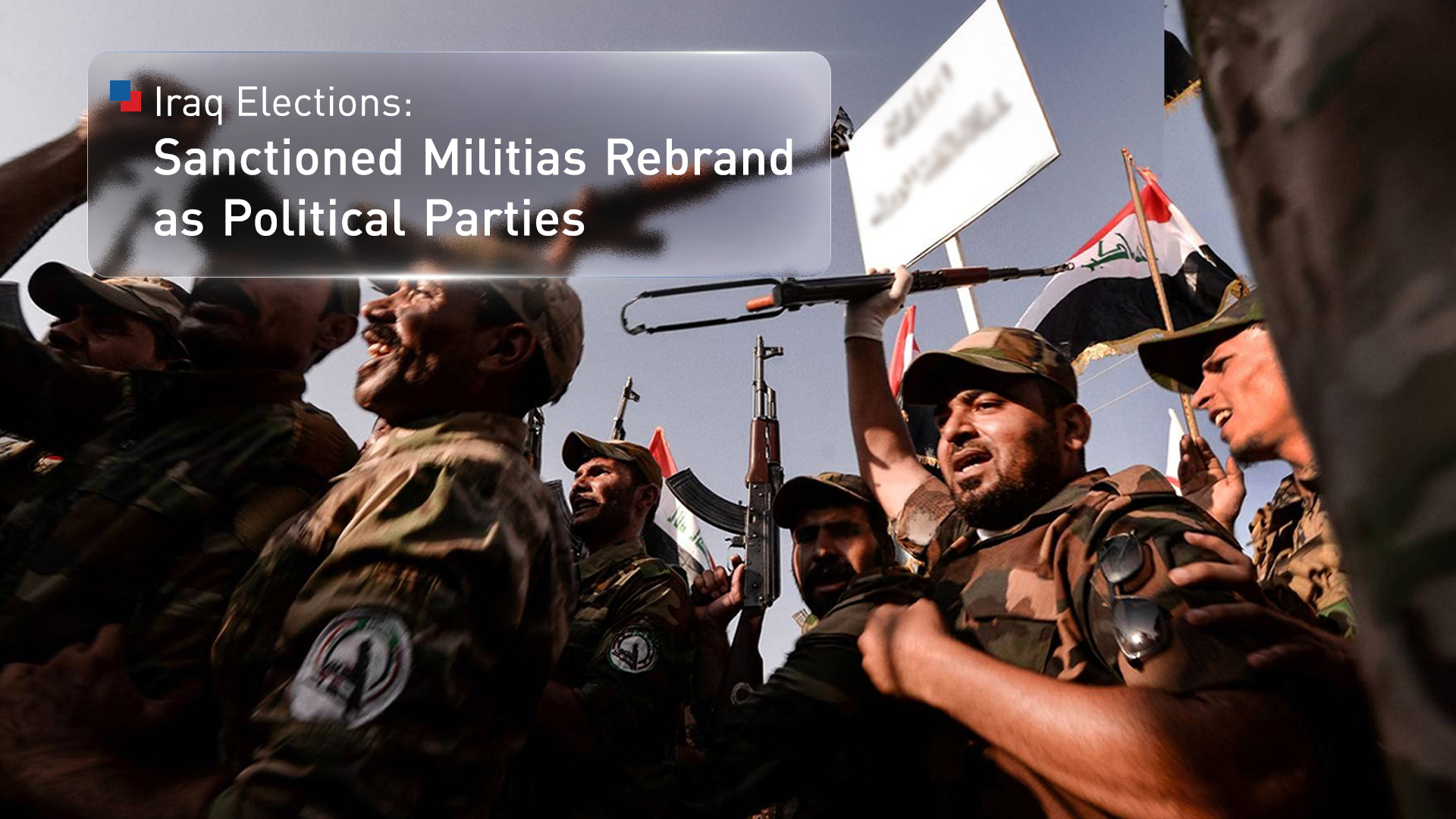US-Designated Terror Groups Rebrand as Political Parties to Contest Iraqi Elections
US-designated terror groups, including Kata'ib Sayyid al-Shuhada, are running in Iraq's election under new names after being blacklisted for Iran ties.

ERBIL (Kurdistan24) - In a move that lays bare the complex and often contradictory nature of Iraq's political landscape, several armed groups recently blacklisted as "Foreign Terrorist Organizations" by the United States are poised to contest the upcoming parliamentary elections, having repackaged themselves as political movements with new names.
According to a report by Anadulo Agency (AA), just weeks after the U.S. State Department formally designated them for their deep ties to Iran and their role in violent attacks across the region, at least three of these powerful militias, all affiliated with the Popular Mobilization Forces, are now campaigning for seats in the Iraqi Council of Representatives.
This rebranding allows these US-designated terror groups to seek legitimate political power through the ballot box, raising profound questions about the integrity of the electoral process and the enduring influence of armed actors within the Iraqi state.
The formal designation by the United States came on Sept. 17 of this year, when the State Department added Harakat al-Nujaba, Kata'ib Sayyid al-Shuhada, Harakat Ansar Allah al-Awfiya, and Kata'ib al-Imam Ali to its list of Foreign Terrorist Organizations (FTOs).
In its announcement, the U.S. government explicitly stated that "Iran supports these armed groups to assist in its plans and attacks in the region." The designation is a powerful diplomatic and financial tool, designed to cut off the groups' access to international financial systems, freeze any assets under U.S. jurisdiction, and criminalize the act of providing them with material support.
Despite this significant international pressure, three of these four organizations have seamlessly transitioned into the political arena ahead of the nationwide election scheduled for Nov. 11. Kata'ib Sayyid al-Shuhada is now participating in the elections under the political banner of "Muntasirun."
Kata'ib al-Imam Ali has rebranded itself as the "Islamic Iraqi Movement." Similarly, the Harakat Ansar Allah al-Awfiya is campaigning under the name "Sidq and Ata Movement." The fourth group, the Harakat al-Nujaba, has not yet officially registered a distinct political wing to participate in the elections; however, reports indicate that it has a clear "understanding with a number of candidates," suggesting its influence will still be felt in the electoral contest.
These rebranded entities are now part of a massive field of 7,926 candidates competing for seats in the next parliament.
The U.S. decision to blacklist these specific groups was not arbitrary but was based on a long and violent history of attacks targeting American personnel and facilities, as well as their role as key components of Iran's regional network.
These militias, often operating under the collective umbrella of the Islamic Resistance in Iraq, are a central part of Tehran's "Axis of Resistance," a web of proxy forces spanning Iraq, Syria, Lebanon, and Yemen that Washington views as a primary source of instability in the Middle East.
Harakat al-Nujaba (HAN), established in 2013, has openly pledged its loyalty to Iran’s Supreme Leader, Ayatollah Ali Khamenei, and maintains extremely close operational ties with Iran’s Islamic Revolutionary Guard Corps-Qods Force (IRGC-QF).
The group, whose leader, Akram al-Kabi, was individually designated a Specially Designated Global Terrorist (SDGT) back in 2019, has been a vocal and active threat, publicly threatening to attack U.S. bases and personnel throughout the region.
Kata’ib Sayyid al-Shuhada (KSS) has also been accused of consistently threatening U.S. and Global Coalition to Defeat ISIS forces. The State Department designated the group and its leader, Hashim al-Saraji, as SDGTs in 2023, citing the extensive backing it receives from Iran in the form of funding, advanced weaponry, and tactical training.
Harakat Ansar Allah al-Awfiya (HAAA) was linked by the State Department to one of the most brazen and deadly attacks against American forces in recent years: the January 2024 drone attack on Tower 22 in Jordan, which tragically killed three U.S. service members and injured dozens more. The group's leader, Haydar al-Sa’idi, was sanctioned earlier in 2024 for his direct role in orchestrating that fatal attack.
The fourth group, Kata’ib al-Imam Ali (KIA), has a well-documented history of coordinating attacks on U.S. military personnel, diplomatic facilities, and even commercial projects within Iraq. Its members have reportedly received training in both Iran and Lebanon, under the guidance of Hezbollah.
The militia's leader, Shibl al-Zaydi, who was sanctioned in 2018, was known to have worked in close coordination with the slain IRGC-QF commander Qasem Soleimani, particularly in financing and planning operations. The attacks carried out by these and other Iran-aligned armed groups have intensified significantly since the 2020 U.S. drone strike in Baghdad that killed Soleimani.
The participation of these rebranded militias in the November 11 election highlights a critical challenge for Iraq's democracy. While the U.S. aims to isolate these groups through sanctions and terrorist designations, their deep integration into Iraq's security and political structures, primarily through the Popular Mobilization Forces, provides them with a level of domestic legitimacy and operational freedom that international pressure alone cannot easily dismantle.
By simply changing their names and fielding candidates, these armed factions are leveraging the democratic process itself to solidify their power and influence, potentially gaining a formal, state-sanctioned platform from which to advance their agendas, which Washington has officially determined to be aligned with Iran's destabilizing regional ambitions.
As Iraqi voters prepare to go to the polls, the presence of these groups on the ballot serves as a stark reminder of the blurred lines between military and political power that continue to define the nation's struggle for stability and true sovereignty.